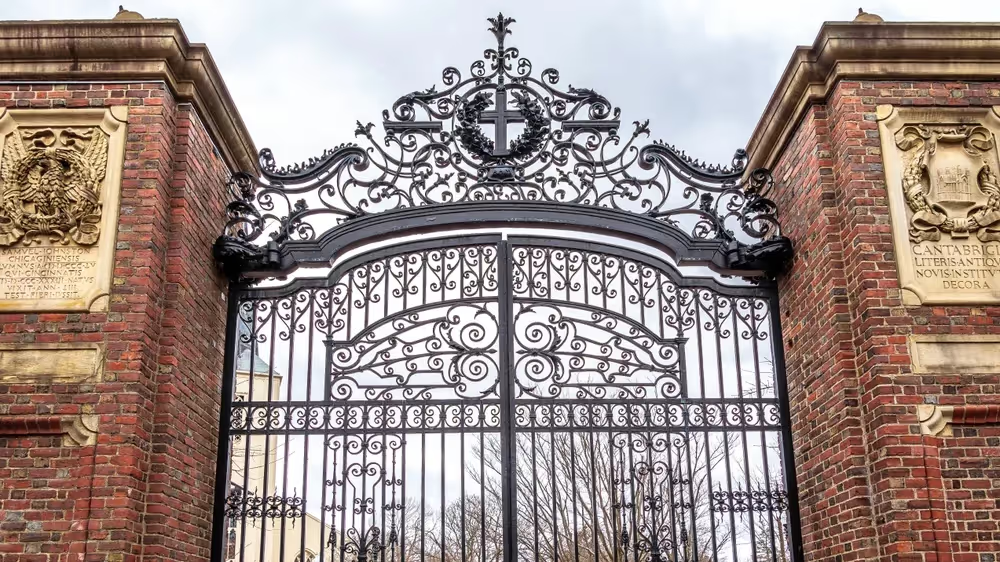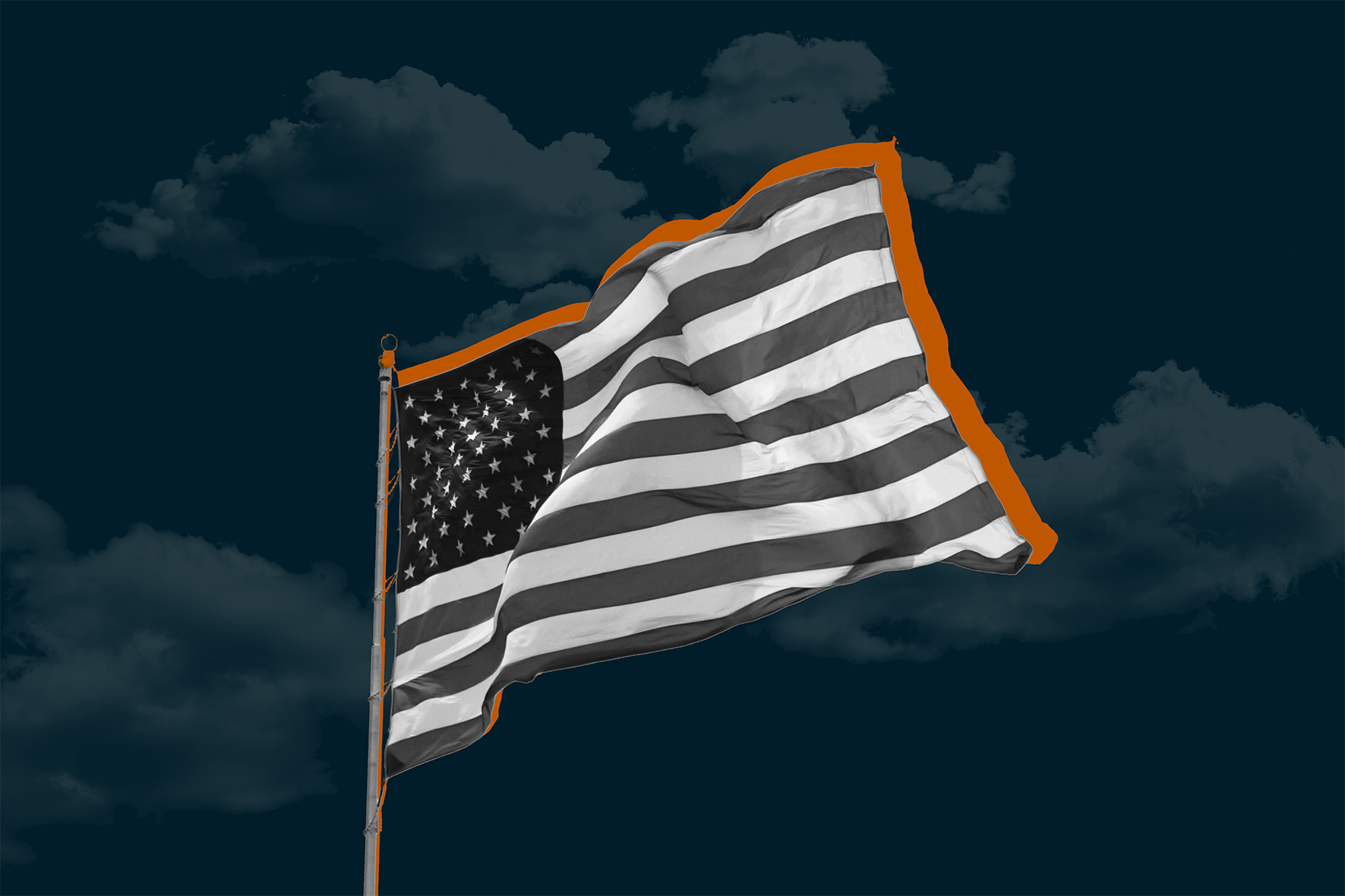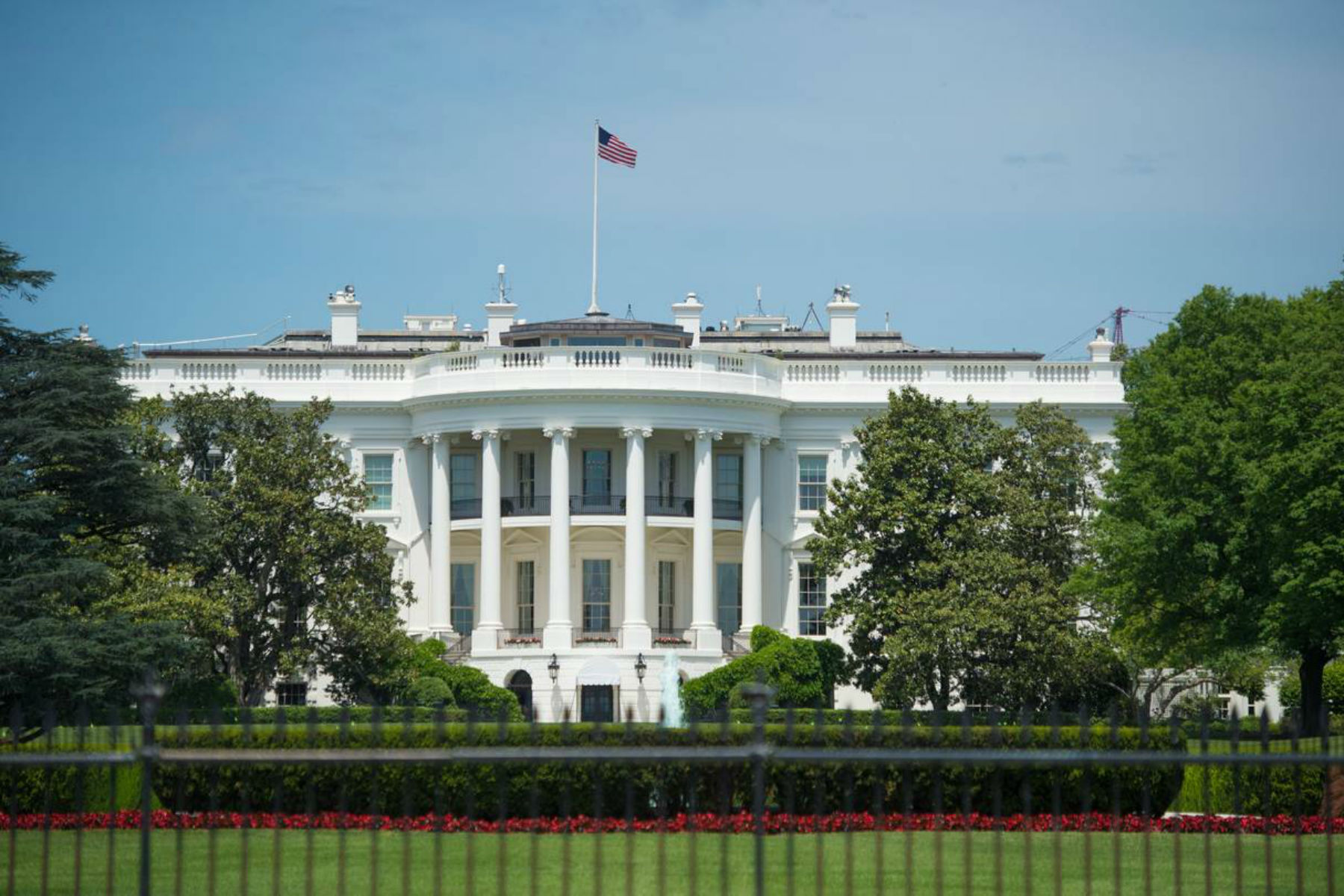
The Academic “Resistance” Decries Government Interference
The academy should now recover its institutional autonomy, we are told.
The academic “resistance” has found its rallying cry. “No government — regardless of which party is in power — should dictate what private universities can teach, whom they can admit and hire, and which areas of study and inquiry they can pursue,” wrote Harvard President Alan Garber. Princeton President Christopher Eisgruber, on a campaign of his own to defend elite schools against the Trump administration’s crackdown, shared Garber’s quote across social media and added, “Princeton stands with Harvard. I encourage everyone to read President Alan Garber’s powerful letter in full.”
Leaders from peer schools have formed a “private collective” to rally around that principle. The Wall Street Journal reports that “the allied university leaders agree that one red line for them is relinquishing academic independence, including autonomy over admissions, hiring, and what they teach and how it is taught.”
The argument for academia’s immunity is intuitive, catchy, and nonpartisan, at least on its face. Witness Golden State Warriors head coach (and occasional Democratic Party activist) Steve Kerr picking it up at a press conference where he donned a Harvard basketball shirt. “It’s crucial for all of our institutions to be able to handle their own business the way they want to,” Kerr told reporters. “They should not be shaken down and told what to teach — what to say — by our government.”
The problem is, it’s wrong. Legally, it’s not true that the government can’t meddle in universities’ internal affairs, if those universities accept federal support. If university presidents like Garber and Eisgruber truly believe that the government must stay out of their business, it’s not the Trump administration and its supposed overreach they oppose – it’s civil rights law itself.
That’s why sweeping statements about institutional independence have such troublesome historical resonance. They sound remarkably like Alabama Governor George Wallace giving his 1963 “school house door” speech in Tuscaloosa: “The unwelcomed, unwanted, unwarranted and force-induced intrusion upon the campus of the University of Alabama today of the might of the Central Government offers frightful example of the oppression of the rights, privileges and sovereignty of this State by officers of the Federal Government.” Granted, the relationships of the federal government to states, as opposed to private universities that receive federal support, are different. But intrusion into private institutions’ business is precisely what civil rights law is designed for. The feds won’t shut Harvard down for conducting its affairs in a manner repugnant to our national policy commitments – but it will shut off the spigot of federal tax money flowing to Cambridge.
Title VI of the Civil Rights Act is designed to prevent universities from tolerating discrimination based on many protected characteristics, including national origin. Nobody disputes that national-origin discrimination would include harassment of Jews and Israelis on American campuses. And nobody disputes that the government has the power to revoke federal funding if it can show that universities are taking inadequate action to combat such discrimination.
Before the government institutes legal proceedings to withdraw its support, though, it must allow universities to come into “voluntary compliance” with whatever measures the government deems necessary to address the discrimination problem. Those measures should be tailored to address the discrimination and should not be purely punitive; however, they can be onerous. Ultimately, the government gets to decide what they are. This has been an uncontroversial practice for decades and typically results in unremarkable settlements between schools and the Department of Education.
This is where we get our answer to whether the government can meddle in curricula, hiring and admissions, and other supposedly untouchable academic realms. Let’s say there were a private but federally supported university that had a department of Whiteness Studies. In that department, white-supremacist race science was treated as legitimate scholarly inquiry. The department hired David Duke as its chair, and he was empowered to hire white supremacist professors who would “explore” the superiority of their race. To ensure the department has enough students majoring in the topic, the university would be sure to admit high school graduates who indicate on their application that they are interested in studying the Great Replacement or becoming an activist who preserves America’s “traditional ethnic heritage.”
Each year, “Students for Racial Justice” gather on the campus quad for a “protest” against African migration to Europe, saying that Europe belongs to Europeans and black people don’t belong there. For good measure, when members of the group violate school rules by vandalizing buildings with slogans such as “It’s OK to be white” and “From sea to shining sea, America for Americans,” administrators fail to punish them in any way. Occasionally, the school would even post glowing profiles of a student who had been videoed assaulting minorities and announce that the student would receive a school-funded stipend to work at a nonprofit known to funnel money to white-supremacist groups.
It’s the easiest Title VI case in the world. This university has created a systemically discriminatory atmosphere against black Americans and other minorities. It cannot continue to receive federal funding as long as it violates the Civil Rights Act, even though its violations stem from the individuals it has hired and admitted, the content of its teachings, and other areas traditionally protected by academic freedom. The federal government is entirely within its rights to demand that the school abolish its Whiteness Studies department, fire Duke and his acolytes, and revise its admissions procedures to ensure that it stops courting white-supremacist matriculants if it wants to continue receiving federal dollars. If the school fails to do so, it will likely lose in court and its federal funding will be cut off, possibly permanently, even if most of the university’s functions have nothing to do with its Whiteness Studies program.
Garber, Eisgruber, and the rest of the resistance are aware of all this, which means they recognize that their stated position of absolute university independence is not entirely honest. They also know that Title VI protections extend to national-origin groups like Jews and Israelis. What, then, is left of their resistance?
Unfortunately, what’s left is downplaying national-origin discrimination. “We do not take lightly our moral duty to fight antisemitism,” wrote Garber, but his line in the sand indicates the opposite. Perhaps Harvard is not as extreme as the hypothetical above, although some of the examples are lifted straight from watchdog reports and campus newspaper headlines. Then again, perhaps the hypothetical and reality ought to be assessed in a binary: Is there undealt-with discrimination or not? Harvard’s task force on antisemitism called the situation for Israelis on campus “dire.” It found that some “faculty members…discriminate against or harass students because they are Israeli.” A Congressional report details the “significant problem” of “antisemitic harassment” at Harvard and how “Harvard’s leaders failed to implement” recommendations to stop it. Every report analyzing Harvard’s national-origin discrimination problem notes that it is neither new nor resolved. It is longstanding and ongoing.
Garber has acknowledged that Harvard has a “real problem” with national-origin discrimination. There is ample reason to believe, with the government, that that problem stems from academic departments that teach anti-Israel extremism, including the crackpot theory that Jews are white Europeans who stole Israel from Indigenous Arabs. (Harvard removed the leadership of its Center for Middle Eastern Studies after several reports detailed the department’s yearslong pattern of doing precisely that. The individuals responsible will maintain their faculty positions.) There is a problem with radical faculty discriminating against Israelis and Jews. And year after year, elite schools are full of students who eagerly take on anti-Israel activism, shouting about how Israel does not belong to Jews, who should go back to Europe. The most radical among them are not kicked out, even if they break school rules or laws; to the contrary, they are feted, rewarded with social-justice scholarships and graduation speeches.
Yet instead of a good-faith attempt to root discrimination out at its source, we get legally incoherent platitudes about academic independence. We should recognize this for what it is: posturing, deflection, and an attempt to tell Jews and Israelis that discrimination against them isn’t discrimination.
None of this is to say that the Trump administration has been exemplary in its effort to stamp out discrimination. It appears to be short-circuiting some of the procedural requirements for revoking federal funding. The administration occasionally makes demands, such as anti-plagiarism measures, whose connection to discrimination is tenuous at best. It may well lose in court. But making an honest argument in service of legitimate long-term goals seems to have taken a back seat altogether. Both sides, government and university administrators alike, seem more concerned right now with scoring PR wins by posturing as fighters than with fixing serious problems in higher education. The fact that the academic “resistance” thinks it can get away with downplaying massive civil rights violations in the court of public opinion is especially troubling.
Each side may appear to be a winner to its own team. The losers? Those still suffering discrimination, and our fraying national commitment to civil rights for all.
Tal Fortgang is a senior legal fellow at the Manhattan Institute.
Politics

National Civitas Institute Poll: Americans are Anxious and Frustrated, Creating a Challenging Environment for Leaders
The poll reveals a deeply pessimistic American electorate, with a majority convinced the nation is on the wrong track.
.webp)
Liberal Democracy Reexamined: Leo Strauss on Alexis de Tocqueville
This article explores Leo Strauss’s thoughts on Alexis de Tocqueville in his 1954 “Natural Right” course transcript.
%20(1).avif)
Long Distance Migration as a Two-Step Sorting Process: The Resettlement of Californians in Texas
Here we press the question of whether the well-documented stream of migrants relocating from California to Texas has been sufficient to alter the political complexion of the destination state.
%20(3).avif)
Who's That Knocking? A Study of the Strategic Choices Facing Large-Scale Grassroots Canvassing Efforts
Although there is a consensus that personalized forms of campaign outreach are more likely to be effective at either mobilizing or even persuading voters, there remains uncertainty about how campaigns should implement get-out-the-vote (GOTV) programs, especially at a truly expansive scale.

California’s Green Policies Destroy Blue-Collar Jobs
The problem here lies not with racism, or lack of reparations, as Newsom and “progressives” insist, but with their own policies, which devastate minority communities.

There's a Perception Gap With the U.S. Economy
As we approach another election cycle, it’s worth asking: what’s real, what’s political theater, and what does it all mean if Democrats regain control of the House?
.jpg)
Confusion about Commandeering
State governments are not instrumentalities or vassals of the federal government but rather sovereign entities with their own legal authority.

A Climate Science Manual for Judges Discredits Itself
All is not well with the Reference Manual for Scientific Evidence. This is a loss for the public trust of science.



.avif)









